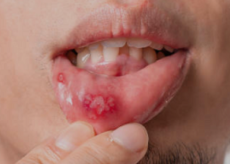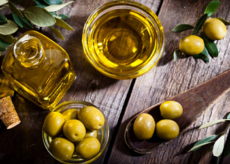10 Natural Home Remedies for Acne – Honey, Aloe, Saffron, Orange Peel & more
Are you tired of blackheads and pimples that keep coming back from time to time or that don’t just disappear? In this article you can see the best and most effective home and natural remedies to get rid of acne.
First of all, if you have an acute acne problem you should see a dermatologist. You should also see if you have any allergies to the natural ingredients and products mentioned in this article.
To test possible allergies, you should put a small amount on a small area of skin, on the forearm for example, before applying the mixture to the entire acne-affected area (especially the face).
Many people, even in adulthood, suffer from severe acne problems affecting the quality of skin and life. It can in turn affect self-confidence, making it a necessary problem to treat and resolve.
What causes acne?
There are different types of acne. The most common acne is the type that develops during adolescence. Puberty causes hormone levels to skyrocket, especially testosterone. These hormones stimulate the glands of the skin that begin to produce more fat (sebum).
Children and Adults May Also Have Acne
The overproduction of sebum in the skin and the concentration of dead cells in the hair follicles of the skin are some of the causes of acne. These factors result in obstruction, bacterial buildup, and inflammation.
The hair follicles are connected to the sebaceous glands, which secrete an oily substance known as sebum to lubricate the hair and skin. When the body produces an excessive amount of sebum and dead skin cells, both can accumulate in the hair follicles, creating an environment where bacteria can thrive.
This scenario can cause the follicle to swell and become inflammed, producing pus and forming what is known as a pimple. It can also happen that the open follicle fills with fat creating a black spot.
Factors That May Make Acne Worse
- Hormones: Androgens are the hormones that increase in boys and girls during puberty, causing the sebaceous glands to enlarge and produce more sebum. Hormonal changes related to pregnancy and oral contraceptive use can also affect sebum production.
- Certain medications, such as corticosteroids, androgens, or lithium base are known to cause acne.
- Dietary factors including excessive consumption of dairy products and/or carbohydrate-rich foods (such as bread, crackers and chips).
Acne Myths
Contrary to what some people think, these factors have little effect on acne:
- Fatty foods and chocolate have little or no effect on the development and course of acne.
- Acne is not caused by dirt. In fact, washing the skin too hard or cleaning it with abrasive soaps and chemicals can irritate the skin and make it worse. Doing a simple cleansing of the skin to remove excess fat and dead cells is all that is needed.
Risk Factors
Hormonal changes in the body can cause or aggravate acne. Such changes are common:
- In teenagers
- Two to seven days before menstruation
- In pregnant women
- In people who use certain medications, such as those containing steroids, androgens, or lithium.
Acne can be irritated or aggravated by:
- Stress
- Excessive sweating
- Letting the hair come into contact with the skin can leave the skin greasy.
- Work with oils and chemicals regularly.
- Athletes or bodybuilders taking anabolic steroids are also at risk for developing it.
Types of Acne:
The different types of acne include:
Newborn Acne
About 20% of newborns develop mild acne. This may be due to certain hormones that are passed through the placenta by their mothers before birth.
Another cause of acne in babies is birth stress, which can cause the baby’s body to release hormones. Newborns with acne often have lesions that go away on their own.
Infantile Acne
Infants aged 3 to 16 months can develop acne. They may have blackheads and pimples. It usually goes away when the child is two years old. These rarely scar and can be caused in part by higher than normal hormone levels.
Acne Vulgaris
It occurs most often in adolescents and young adults.
Cystic Acne
It occurs mainly in young men. Large pimples develop on the face, chest, back, arms, and thighs. This type of acne can be difficult to treat and often leaves scars.
Acne Fulminans
It occurs more in adolescent males and develops very rapidly in the back and chest. These pimples often leave severe scars. Patients with fulminans acne may suffer from fever and muscle and bone aches and pains.
Top 10 Best Natural Remedies to Eliminate Acne
If you are suffering from moderate acne, you don’t have to invest a lot of money to solve the problem. There are natural or home remedies are very effective in eliminating the most common symptoms.
In general, you should avoid putting your hands on your face and keep hair away from your face to avoid irritation and excess fat.
In particular, you should avoid “exploiting” blackheads and blackheads, as this contributes to contamination and infection of the affected areas and the breakdown of the skin layers, causing irreparable injuries.
Before applying these natural remedies, it is advisable to have the facial skin clean (or the area to be treated).
Vitamins
Whether through diet or vitamin supplements, you should increase your intake of the following vitamins to eliminate acne.
- Vitamin B3 (Niacin): Foods rich in vitamin B3 are included in fish such as tuna or swordfish, or peanuts.
- Vitamin E: Vitamin E is also vital to speed up wound healing. Foods rich in vitamin E include spinach, broccoli and tropical fruits.
- Zinc: Zinc has also shown very positive results in the treatment of acne. It makes the skin healthier. Zinc-rich foods are oysters and liver.
- Vitamin D: Exposure of the skin to sunlight can increase vitamin D levels in the body. Exposing the whole body to the sun can be very beneficial (always moderately and without burning).
Sodium Bicarbonate
Add a little water to a little bit of baking soda and mix well to make a thick paste. Apply all over the face or simply on the blackheads until dry. Then, just wash your face with lukewarm water. Repeat the process to clean the entire affected area.
Egg whites
Separate the yolk from the egg white and apply only to clean the affected area. It is preferable to apply during night time to obtain more effective results.
If the smell of egg white doesn’t bother you, you can let it work all night long. If you repeat the process for a few days, you can see impressive results.
Aloe Vera
The inside of the Aloe vera leaf is a gel that can be mixed with water or applied directly to the affected area, including the face. After application, leave it on for a few minutes (for example 30 minutes). Wash the area and repeat the process at least twice a day.
You can also use Aloe vera ointment or cream, which is also very effective. Aloe acts as an anti-inflammatory, antibacterial and is ideal for an effective treatment.
Saffron
Saffron is a spice and is excellent because it prevents the production of excess skin melanin. It is antibacterial and adapts perfectly to all skin types. You can increase your intake of turmeric as a spice in your meals or apply directly to the affected area.
Apply on the skin for a few minutes and then wash. It can be repeated up to 2 times a day.
You can also choose to make a mixture with some milk, honey, lemon, and saffron.
Lemon
Keep in mind that treatment with lemon slices or lemon juice is very acidic and can dry the skin, especially sensitive skin. Do this treatment only few minutes a day and moisturize the skin well before and after treatment.
Take a slice of lemon and mildly rub your face with it. The properties of citric acid in lemon, shrinks pores, removes bacteria and reduces excess fat production in the skin.
If you have sensitive skin, dilute the lemon juice with a little water and make sure to apply it for a few minutes.
Orange Peel
Separate the peel from the orange and let it dry in the sun. After drying, the dried orange peel must be ground. Add drops of water to make a paste. Then apply it on the affected area. Leave for 10 to 15 minutes and then wash face with warm water.
Physical Exercise
Physical exercise promotes sweating and is one of the best strategies you can use to fight acne. Sweating removes toxins from the body and makes the skin more elastic, healthy and breathable.
Yoga or meditation can also reduce stress and contribute to healthier skin, helping to eliminate symptoms.
Garlic
Garlic is a good home remedy for skin cleansing. It can be included in your normal diet, or applied directly to the affected area.
Apply the chopped garlic to the affected areas and let it work for about 15 minutes. Despite getting an uncomfortable sensation for a few seconds, garlic “burns” your pimples and cleanses the skin. A couple of cloves of garlic are enough to carry out the treatment. Crush them into a paste and apply to affected areas.
Honey
This is a simple natural cure for acne that can be done in seconds. Put some honey on top of the grains and then cover with a band-aid. Repeat the process before going to bed and leave it on until the next morning. In the morning, wash your face and repeat the process until you get good results.



